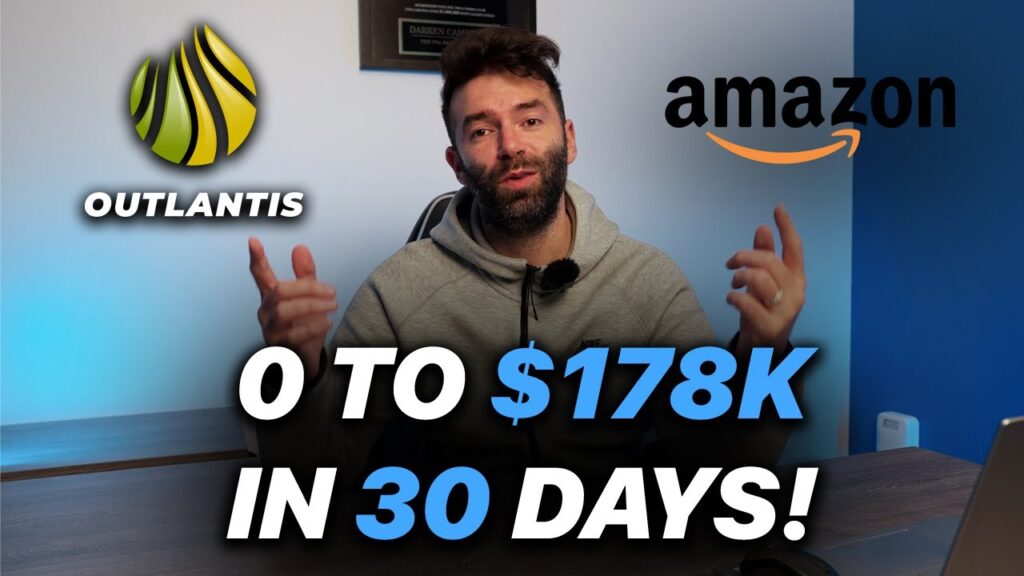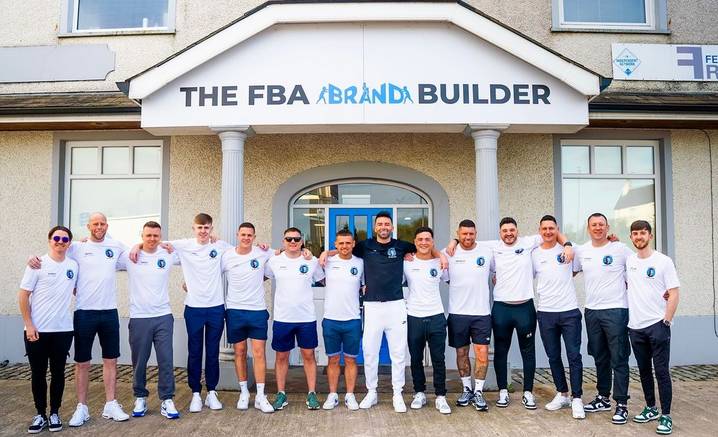With Amazon FBA, success stories are highly enticing. Program websites and social media accounts are packed with glowing testimonials, each showing a different “student” who supposedly turned their life around in a matter of months. But not all these stories are what they seem. In some cases, these testimonials are strategically crafted, featuring a specific type of person with a “rags-to-riches” narrative that doesn’t always tell the full truth. Here’s how to see through the hype and recognize the red flags of potentially fake success stories.
1. The “Rags to Riches” Playbook
If a program’s testimonials all seem to come from people with no prior business experience, often from lower-income backgrounds, it’s worth questioning why. Darren Campbell’s FBA Brand Builder tends to feature success stories from people who, by their own admission, had limited means or were looking for a life-changing opportunity. While there’s nothing inherently wrong with this, the pattern becomes suspicious when there’s a noticeable absence of testimonials from people with credible e-commerce experience or digital marketing backgrounds.
It’s telling that you rarely see established marketers or experienced Amazon sellers in these success stories. Instead, the program consistently highlights individuals who fit a “struggling, average Joe” profile, reinforcing a rags-to-riches narrative. Why? Because this appeals to a specific audience – people who are struggling financially and may be more susceptible to the promise of a quick turnaround.
2. Repetitive, Scripted Language
Pay attention to the language in these testimonials. When multiple people use the same catchphrases and buzzwords, it’s often a sign that their statements were prompted or scripted. For example, many testimonials associated with FBA Brand Builder feature lines like “breaking free from the 9-5” or “finally making money in my sleep.” These are phrases echoed by Darren in his marketing, giving the impression of a cohesive but orchestrated story rather than diverse, individual experiences.
Real testimonials are usually more varied and personal. If every testimonial sounds like it’s coming from the same script, be wary. It’s an attempt to build brand consistency, but it can also indicate that these testimonials are curated or even prompted by the program itself.
This testimonial from Jordan McClean perfectly illustrates the repetitive and scripted language often seen in Amazon FBA success stories. His story is relatable and hits all the right emotional notes—being "trapped" in a traditional job, feeling unfulfilled, and discovering a new opportunity during COVID. He describes finding "freedom" and now “living life on his own terms” through Amazon FBA.
But if you’ve watched other testimonials from Darren Campbell’s FBA Brand Builder, you’ll notice a familiar formula at play. The narrative follows a structured journey from dissatisfaction to transformation, mirroring countless other stories featured by the program. Phrases like "living life on my own terms" and "getting fulfillment from helping others" are echoed by multiple participants, creating a consistent but overly polished message.
This approach raises questions about authenticity. When every testimonial sounds this similar, it feels less like genuine individual experiences and more like a carefully crafted marketing narrative. The messaging aims to appeal to people who feel trapped in traditional jobs, but it doesn’t fully disclose the challenges and ongoing effort FBA businesses require. It’s a reminder to approach these stories with caution and consider what might be left unsaid.
3. Overemphasis on Lifestyle Imagery
A common tactic in fake success stories is to emphasize lifestyle over real business metrics. Darren’s FBA Brand Builder frequently showcases testimonials that focus on the lifestyle aspects: exotic vacations, designer items, luxury cars, and financial “freedom.” But there’s usually very little explanation about the business itself. Rarely do these testimonials go into the specifics of product selection, ad spend, or profit margins.
Instead of concrete numbers or business-related achievements, these stories create an aspirational image, tapping into the “dream lifestyle” that people want. While this is effective marketing, it’s also a distraction from the realities of running an Amazon FBA business, which typically requires time, money, and persistence before yielding results.

4. Shortened Success Timelines
Many Amazon FBA programs push a “fast success” narrative, which is highly appealing but rarely realistic. Testimonials from FBA Brand Builder often claim that individuals reached significant income milestones in just a few months. However, the real process of growing an Amazon FBA business takes time. There are countless factors involved – from product sourcing to advertising – that can delay profitability.
A fast success story with vague details can be a red flag. If someone’s claiming they achieved five figures in their first 30 days without discussing their ad spend, inventory costs, or logistics, they might be glossing over the real challenges involved.

5. Lack of Transparency and Verifiable Proof
Genuine testimonials often include some form of verifiable proof – screenshots, metrics, or even specific product names (where possible). But FBA Brand Builder testimonials rarely show actual Amazon sales dashboards or detailed breakdowns of revenue versus expenses. Instead, you get broad statements like, “I made $10,000 this month” without any context.
Verifiable proof like a screenshot of Amazon Seller Central adds credibility. A vague statement doesn’t hold up as evidence, especially when the success is claimed to be rapid and massive. Always question testimonials that don’t offer any hard data.

6. No Credible Success Stories from Experienced Sellers
One of the biggest red flags with some FBA programs is the lack of testimonials from experienced marketers or established Amazon sellers. You’d expect a successful FBA program to have at least a few testimonials from people who already know the ropes of e-commerce. Yet, with FBA Brand Builder, there’s an overwhelming emphasis on newcomers with no prior experience.
It’s likely that credible marketers and experienced Amazon sellers see through the marketing tactics and don’t find the program’s approach appealing or valuable. The fact that you only see beginners in the testimonials – people with limited knowledge of the industry – might indicate that the program isn’t as groundbreaking as it claims to be.

7. Check for Third-Party Reviews
Don’t just rely on testimonials featured on a program’s website or social media pages. Independent reviews from platforms like Reddit, Trustpilot, or forums for e-commerce entrepreneurs can provide a more honest view of the program. FBA Brand Builder has limited independent reviews, which makes it challenging to verify the claims made on their official channels.
Third-party reviews are often less biased and can give you a sense of whether other people have had real success with the program – or if they found the experience disappointing. A lack of independent feedback is a red flag in itself.

8. Promises of Passive Income with Minimal Effort
Be cautious when testimonials or marketing materials promise “passive income” with little ongoing work. Amazon FBA can indeed generate passive income once you’re established, but it still requires ongoing management. Testimonials that make it sound like you can just “set it and forget it” are misleading.
Programs like FBA Brand Builder often suggest that once you’ve done the initial setup, the income will flow in with minimal effort. In reality, FBA requires constant attention – from inventory management to advertising adjustments. Look out for testimonials that promise passive income without discussing the active work involved.

Key Takeaways
It’s easy to be drawn in by flashy testimonials and “success stories,” but always approach them with a critical eye. Fake or exaggerated testimonials can lure you into an FBA program that isn’t as transformative as it claims to be. The most reliable testimonials are grounded in specifics, offer verifiable proof, and come from a range of backgrounds – including people with actual e-commerce experience.
So, before diving into any Amazon FBA course, do your homework. Look for independent reviews, examine the details (or lack thereof) in the testimonials, and question claims that seem too good to be true. The goal is to find a program that provides real value, not just an Instagram-ready “success” story.
